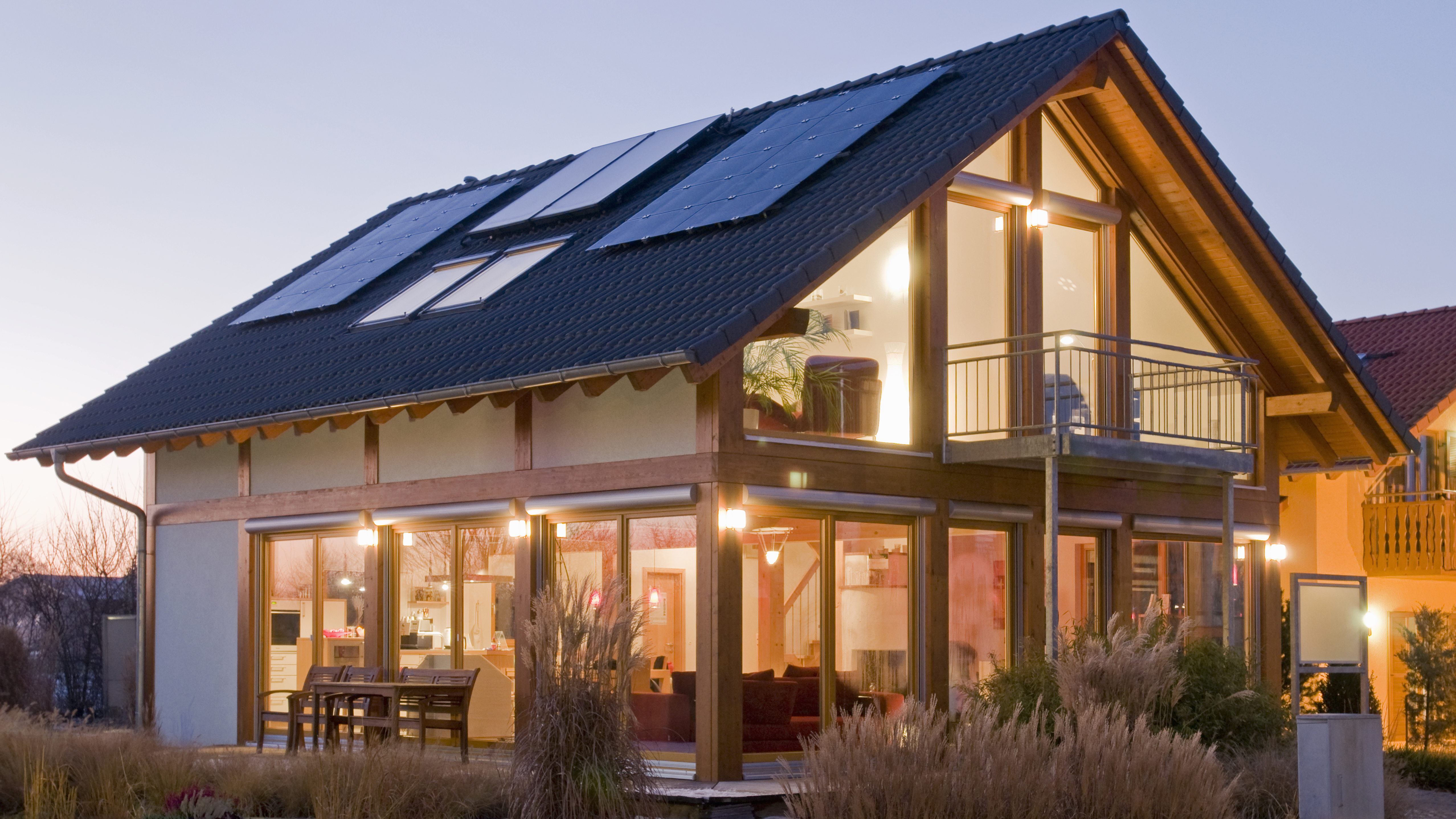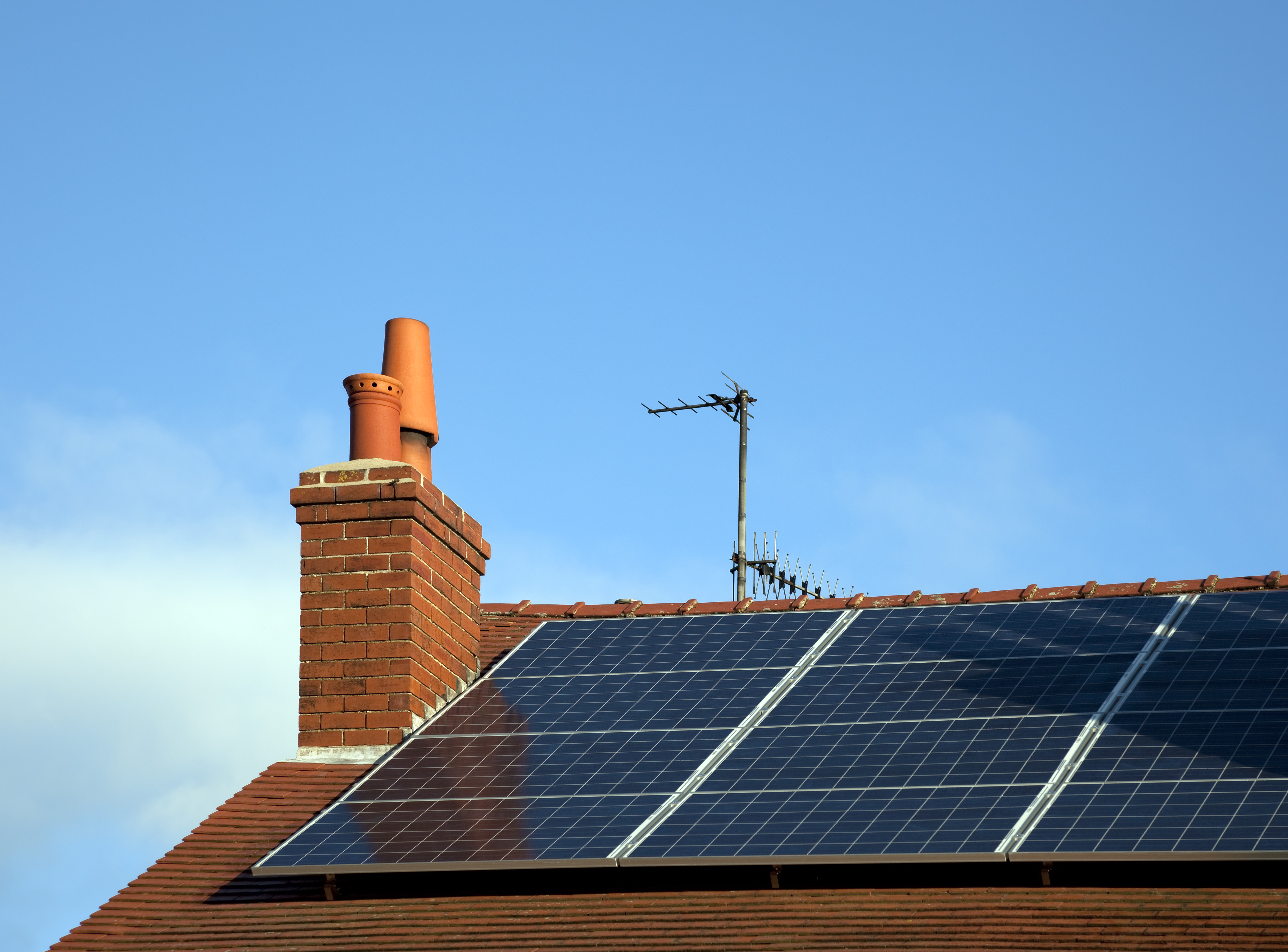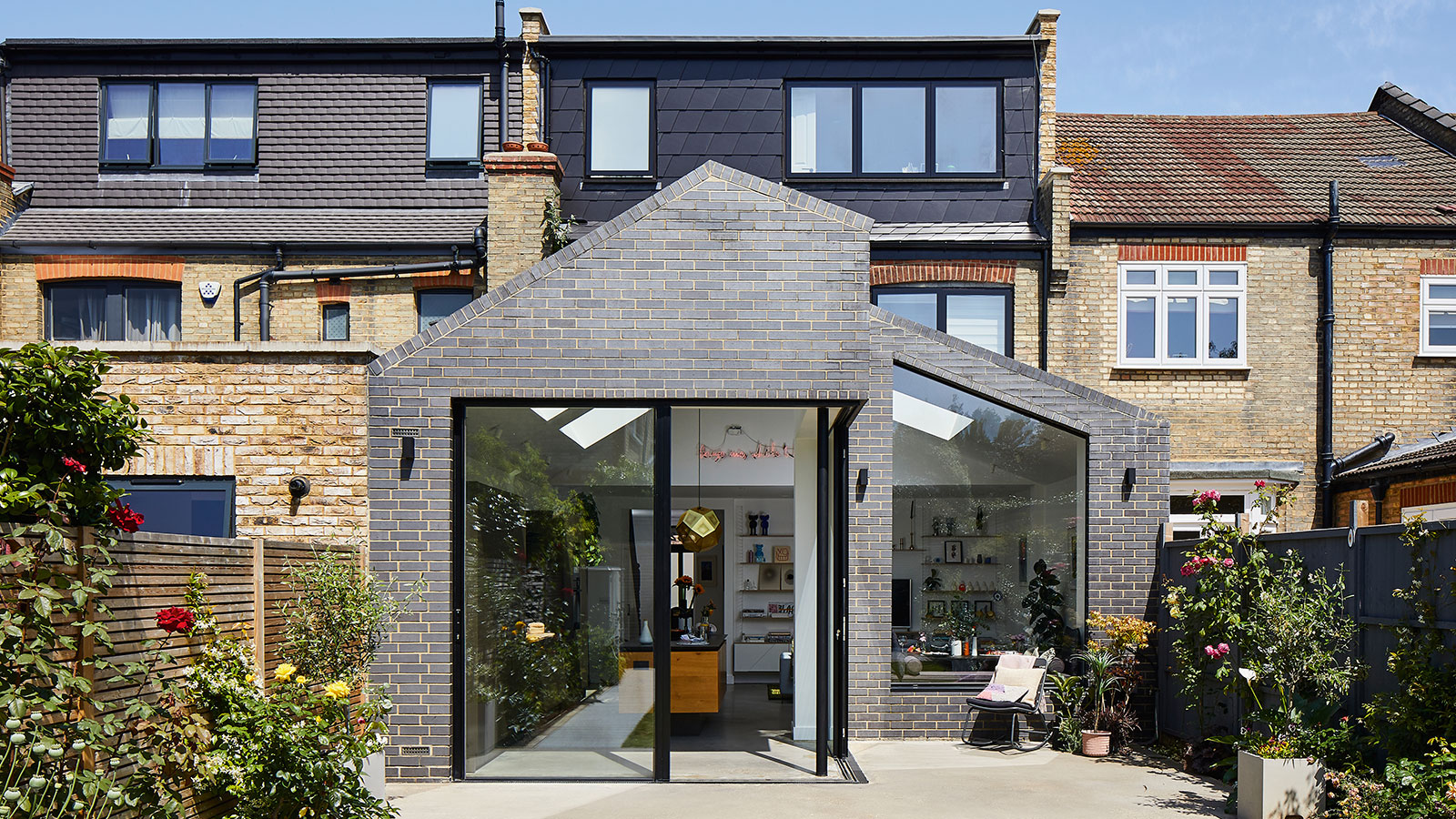What is the cost of solar panels? What you need to know before investing
Before investing in green energy, find out the cost of solar panels with our expert guide, including hidden extras and running costs

Bring your dream home to life with expert advice, how to guides and design inspiration. Sign up for our newsletter and get two free tickets to a Homebuilding & Renovating Show near you.
You are now subscribed
Your newsletter sign-up was successful
Finding out the real cost of solar panels is a smart step towards making your home more eco-friendly.
Home-generated renewable energy is more important than ever before as energy and gas prices skyrocket — and as we become ever aware of our carbon footprint. While solar panels are definitely an investment, they will pay for themselves in time and help to minimise monthly outgoings — making them an enticing option in the current climate.
Here, we delve into the costs associated with installing solar thermal or solar PV panels, the potential running costs and whether solar could be the right investment for your home.
Cost of solar panels: Where to start
Before delving into the cost of solar panels, it is important to note that there are two main types of solar system and this will inevitably have a bearing on cost.
The two main types of solar panel available for homes in the UK, include:
- Solar PV (photovoltaic, from the Greek word meaning light and Volts) — as the name suggests these solar panels generate electricity from the light from the sun.
- Solar thermal feature pipes and as a fluid passes through the pipes it is heated up by the warmth from the sun. They produces warm (hot) water from the heat of the sun.
In basic terms, the difference in how solar panels work is that PV panels produce electricity that can be used for any electrical appliance in the home, or stored in a battery, for use later on.
Solar thermal panels produce heat so are really useful for hot water production. The solar gain in winter is not really good enough to justify the technology to supply heating to the central heating system but the fringe months could potentially see some benefit.
Bring your dream home to life with expert advice, how to guides and design inspiration. Sign up for our newsletter and get two free tickets to a Homebuilding & Renovating Show near you.
Finally, hybrid solar panels (also known as solar PVT) offer both heat and electricity generation, but they are seen much less than the two dedicated options.
How much do solar panels cost in 2022?
Figures can vary depending on quality and specification but for solar PV systems you will be looking at around £5,000 to £8,000 for a 4kWp system and perhaps £8,000 upwards for a 6kWp system. Solar thermal panels will cost less, with a system being in the region of £3,500-£7,500.
So what do these costs typically include and what factors influence price?
The cost of solar PV panels
Let's look at solar PV panels first. Solar PV panels vary in cost depending on the quality of the panels and the power output. Most suppliers have panels ranging from 335 Watts rated peak output to 550 Watts rated peak output.
335W panels off-the-shelf cost around £150 to £200 depending on quality but bigger capacity panels are around £180 to £280. On average you will need around 10 solar PV panels on a roof to power the average house, or eight bigger capacity panels. So you're looking at at least a couple of thousand for the panels themselves.
You then need to add in the cost of the inverter – the device that changes the generated Direct Current (DC) to useable Alternating Current (AC) – which can be between £300 to £700 for a straight inverter or around £1,200 to £2,000 for a hybrid inverter that has the ability to manage a battery system.
Add to that the roof fixing system, plus extra wires, isolators, connectors and flashing and that could be a further £1,000 depending on the panel configuration and the roof cladding type.
Installation for a typical system of around eight to 10 panels could be around be a further £1,500 to £2,500 depending on the roof access and roof materials.
The installer may not need scaffolding if they have their own platform system such as Easi-Dec and that will also depend on it being suitable as it does have limitations. Bespoke scaffolding could also add a further £600-£1,000 if access is difficult.
It's also worth noting that anything larger than 16Amps per phase (which is actually around 3.76kWp but they usually allow 4kWp) will need permission from the Distribution Network Operator (DNO) which may take time and have a cost.
The cost of solar thermal panels
Solar thermal systems would usually have only one or two panels, a solar pump controller, sensors and a new hot water cylinder that has an additional coil for the solar panel connection.
The materials for a solar thermal system would usually be between £1,800 - £3,000. Installation also can vary depending on roof access and pipe route feasibility but expect a fully installed two panel system to cost around £3,500 to £7,000.
What's typically included in a solar panel estimate?
If you are going for a full installation of either of the solar systems you would expect some form of desktop survey that would give you a good estimate of feasibility and expected cost as well as an indication of the installation time.
If this estimated cost for installing solar panels is in budget then the next step is usually a site visit by the installation engineer or a surveyor to confirm all the installation details, check the roof structure, wiring and / or pipe runs as well as the available space for the materials (inverter, battery, isolators, additional distribution board, cylinder, etc) and confirm all the details for the installation.
The full installation should take around one to two days.
In many cases, special deck systems are used instead of scaffolding but they cannot always be used and sometimes need a couple of bolts to be drilled into the wall as a safety support. Scaffolding is not usually included in the cost so check your quote.
Your property might also need planning permission for solar panels, for instance if it is listed or where permitted development rights have been removed, so these costs should also be considered from the start.
Additional items such as bird guards (to stop birds nesting under the panels) and replacement tiles may also not be included in the quote.

How much do solar panels cost to maintain?
The good news is there are very few maintenance costs associated with solar panels. Ongoing maintenance for a solar powered house can be a simple as making sure that the system is clean and monitoring the generation via an app.
It is however prudent to get periodic inspections done to make sure that the panels and wires have not come loose.
The inverter may also need replacing more frequently than the panels (I am on my second inverter — the first one lasted five years but the second one now seven years old).
How can homeowners save on solar panel costs with grants?
Unless you are eligible for ECO (energy company obligation) scheme, there are effectively no Government tariffs or incentives for installing solar panels other than potentially VAT relief on the system itself, at present.
Some energy companies will buy your exported energy but they will only typically pay up to around 8p per kWh. Considering that electricity is currently around 34p per kWh the best thing to do is to use as much of what you generate as you can at the time it is being generated.
How can you save money with solar panels?
If you are actually at home during the sunshine hours then that is easier to manage but for those of us that work away from home it is prudent to buy appliances, such as washing machines and dishwashers, that can be remotely started so that they can run at a time when the sun is at its peak.
Make sure you plan for them to start at different times as you don’t really want to use more energy than is being generated.
You may also choose to add solar batteries to store your unused energy. The cost of a battery will very much depend on the storage capacity of the battery. Expect to pay around >£500 per kWh of storage.
You will need to use, and store, a lot of energy (even at 34p/kWh) to get a financial payback but you may also be able to use the battery to store energy from an off peak electric times tariff. That way your battery could be doing more than one cycle per day.
Are solar panels worth it in 2022?
Although for the last few years, where the Feed-in Tariff and Renewable Heat Incentive softened the cost of installing solar panels to entice a good amount of homeowners, the high costs have put off many since they ended.
However, in the face of gas and energy price rises and the dread of the unknown amounts homeowner might have to pay to keep their homes functioning, they are once again becoming a viable option.
While there are no longer incentives available to most, the increase in energy costs means the 'payback period' for solar panels has reduced, meaning that cost is not entirely one of the true myths about solar. If you're also wondering how long do solar panels last, the good news is the investment isn't a short-term one. You can expect to get at least 25 years from your panels and the answer to 'do solar panels add value to your home' is yes.
Llewellyn Kinch, co-founder of MakeMyHouseGreen, says: “UK households are facing record high energy prices from October 2022, causing the payback period on solar panels to go down by five years. Those lucky enough to afford solar panels can choose to take advantage of the situation by investing in solar panels while they’re able to see a quicker return on investment.”
“The increase to the cost of energy presents an incentive for households to take control of their energy generation, and an expedited return on investment makes it possible for more households to do so.”
The initial outlay will still be a high amount, but the peace of mind knowing that if your household does tap into the mains grid it will cost a minimal amount might make solar panels worth it in 2022 and beyond.
David is a renewables and ventilation installer, with over 35 years experience, and is a long-standing contributor to Homebuilding and Renovating magazine. He is a member of the Gas Safe Register, has a Masters degree in Sustainable Architecture, and is an authority in sustainable building and energy efficiency, with extensive knowledge in building fabrics, heat recovery ventilation, renewables, and also conventional heating systems. He is also a speaker at the Homebuilding & Renovating Show.
Passionate about healthy, efficient homes, he is director of Heat and Energy Ltd. He works with architects, builders, self builders and renovators, and designs and project manages the installation of ventilation and heating systems to achieve the most energy efficient and cost effective outcome for every home.

